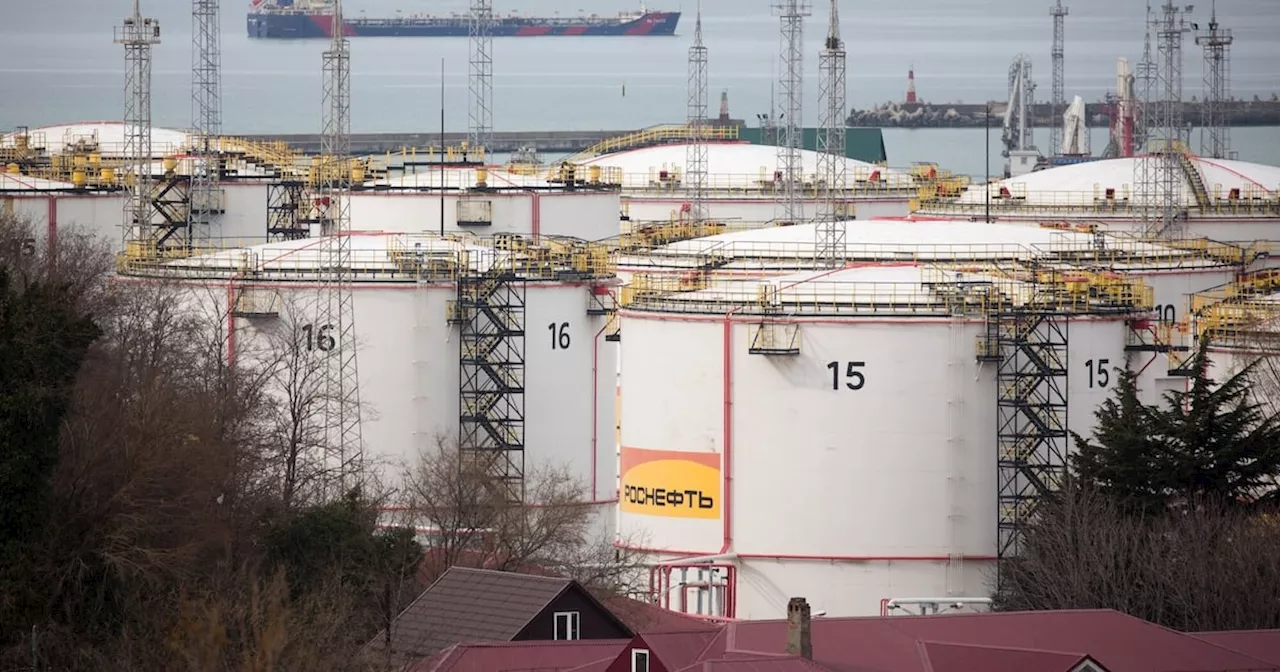Oil prices have rebounded after experiencing significant volatility at the start of the year. Factors influencing the price movements include tightening Russian crude supply, concerns over escalating trade tensions due to President Trump's tariffs, and potential demand boosts from Europe's surging natural gas prices and the Middle East's market dynamics.
Oil prices have stabilized after a significant surge, marking their largest gain in nearly a month. This rebound comes amidst tightening Russian crude supply, which has outweighed concerns over escalating trade tensions stemming from President Donald Trump's expanding tariffs. West Texas Intermediate (WTI) crude oil traded above $72 per barrel, experiencing an almost 2 percent increase on Monday.
Meanwhile, Brent crude closed higher for the second consecutive session, hovering around $76 per barrel. According to sources familiar with the data, production in Russia last month fell further below the nation's OPEC+ quota, indicating a potential supply constraint. The year has seen volatile price movements for oil. Initially, prices climbed due to heightened heating demand during a cold winter in the Northern Hemisphere and U.S. sanctions imposed on Russia's energy sector. However, prices have declined over the past three weeks as Trump's tariff policies have fueled apprehensions about trade wars on multiple fronts. The latest move by the U.S. president involves imposing a 25 percent tariff on all aluminum and steel imports into the United States, affecting even Canada and Mexico, the country's top two suppliers. These tariffs are set to take effect on March 4, and Trump has indicated that they could potentially be raised further, aiming to stimulate domestic production. Adding to the geopolitical uncertainty, Trump has also pressured Israel to terminate its ceasefire agreement with Hamas if hostages are not released by the weekend. Both sides have accused each other of breaching the terms of the truce, raising the risk of renewed conflict. Despite the global headwinds, certain segments of the oil market exhibit signs of tightness. Notably, the Middle East has witnessed a broader reduction in competing oil flows, empowering producers in the region to increase prices for their key Asian customers. Furthermore, soaring natural gas prices in Europe have made oil a more economically viable energy source, potentially leading to an uptick in demand.
OIL PRICES RUSSIAN SUPPLY TARIFFS ENERGY MARKET GLOBAL TRADE
Canada Latest News, Canada Headlines
Similar News:You can also read news stories similar to this one that we have collected from other news sources.
 Oil Prices Surge on Widespread US Sanctions Against Russian ExportsBrent crude surpasses $80 per barrel, driven by widening US sanctions on Russian oil and concerns about supply disruptions. India and China are expected to seek alternative crude sources, potentially boosting prices.
Oil Prices Surge on Widespread US Sanctions Against Russian ExportsBrent crude surpasses $80 per barrel, driven by widening US sanctions on Russian oil and concerns about supply disruptions. India and China are expected to seek alternative crude sources, potentially boosting prices.
Read more »
 Oil Prices Surge to Highest in Months on Wider US Sanctions Against Russian ExportsBrent crude oil prices climbed above $80 per barrel for the first time in over four months, driven by new US sanctions on Russian oil exports. The sanctions target major producers and vessels transporting Russian crude, aiming to disrupt Moscow's funding for the war in Ukraine. Traders anticipate that these sanctions will lead to increased reliance on Middle Eastern, African, and American oil by China and India, potentially pushing prices and shipping costs higher.
Oil Prices Surge to Highest in Months on Wider US Sanctions Against Russian ExportsBrent crude oil prices climbed above $80 per barrel for the first time in over four months, driven by new US sanctions on Russian oil exports. The sanctions target major producers and vessels transporting Russian crude, aiming to disrupt Moscow's funding for the war in Ukraine. Traders anticipate that these sanctions will lead to increased reliance on Middle Eastern, African, and American oil by China and India, potentially pushing prices and shipping costs higher.
Read more »
 Gold Prices Stabilize After Five-Session Rally to Record HighsGold prices steadied on Thursday after a five-session surge to all-time highs, driven by escalating trade tensions between the United States and China. While the upward momentum remains strong, analysts suggest a potential for a short-term correction due to overbought conditions and growing bets on inflationary pressures.
Gold Prices Stabilize After Five-Session Rally to Record HighsGold prices steadied on Thursday after a five-session surge to all-time highs, driven by escalating trade tensions between the United States and China. While the upward momentum remains strong, analysts suggest a potential for a short-term correction due to overbought conditions and growing bets on inflationary pressures.
Read more »
 Oil Prices Surge to Three-Month Highs on New U.S. Sanctions Against RussiaOil prices climbed to their highest levels in over three months on Monday, driven by expectations that new U.S. sanctions targeting Russian oil producers and shipping vessels will disrupt global crude supplies. Brent crude futures surged past $81 per barrel, while U.S. West Texas Intermediate rose above $77 per barrel.
Oil Prices Surge to Three-Month Highs on New U.S. Sanctions Against RussiaOil prices climbed to their highest levels in over three months on Monday, driven by expectations that new U.S. sanctions targeting Russian oil producers and shipping vessels will disrupt global crude supplies. Brent crude futures surged past $81 per barrel, while U.S. West Texas Intermediate rose above $77 per barrel.
Read more »
 Oil Prices Set for a Potential Surge Amidst Geopolitical Tensions and Sanctions ThreatsThe 2024 oil market witnessed a complex interplay of geopolitical events and economic concerns. Despite initial expectations of soaring prices due to Middle Eastern conflicts, oil prices largely declined throughout the year. However, a shift occurred in December with the Biden administration's announcement of stricter sanctions on Russia, potentially leading to further price increases.
Oil Prices Set for a Potential Surge Amidst Geopolitical Tensions and Sanctions ThreatsThe 2024 oil market witnessed a complex interplay of geopolitical events and economic concerns. Despite initial expectations of soaring prices due to Middle Eastern conflicts, oil prices largely declined throughout the year. However, a shift occurred in December with the Biden administration's announcement of stricter sanctions on Russia, potentially leading to further price increases.
Read more »
 Oil Prices Surge on US Sanctions and Demand Recovery ExpectationsOil prices continued their upward trend, poised for a fourth consecutive week of gains, fueled by US sanctions on Russian energy trade and hopes for a demand recovery. Brent crude futures rose 0.4% to $81.65 per barrel, while WTI crude futures climbed 0.7% to $79.21 per barrel. The Biden administration's sanctions on Russian oil producers and tankers raised concerns about supply disruptions. Investors are also monitoring potential implications of Donald Trump's return to the White House and his administration's stance on Russian oil sanctions. Easing inflation in the US and China's economic growth are supporting demand, while a potential ceasefire in Gaza could ease shipping disruptions caused by Houthi attacks on vessels in the Red Sea.
Oil Prices Surge on US Sanctions and Demand Recovery ExpectationsOil prices continued their upward trend, poised for a fourth consecutive week of gains, fueled by US sanctions on Russian energy trade and hopes for a demand recovery. Brent crude futures rose 0.4% to $81.65 per barrel, while WTI crude futures climbed 0.7% to $79.21 per barrel. The Biden administration's sanctions on Russian oil producers and tankers raised concerns about supply disruptions. Investors are also monitoring potential implications of Donald Trump's return to the White House and his administration's stance on Russian oil sanctions. Easing inflation in the US and China's economic growth are supporting demand, while a potential ceasefire in Gaza could ease shipping disruptions caused by Houthi attacks on vessels in the Red Sea.
Read more »
